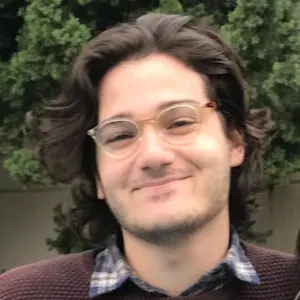In brief
- Francis Suarez, the crypto-friendly mayor of Miami, has hired a Chief Technology Officer for the city.
- Suarez’s pick is Saif Ishoof, the vice president of engagement for Florida International University.
- It’s part of Suarez’s bid to get tech companies to come to Miami.
Miami Mayor Francis Suarez said this morning that he's hired the city’s first-ever Chief Technology Officer. The move appears to be part of Suarez’s larger effort to turn Miami into a hub for tech entrepreneurs and companies, including crypto startups.
Saif Ishoof, Suarez’s pick for the job, is a Miami-based lawyer, and the current vice president of engagement at Florida International University.
Suarez made the announcement Monday morning on Bloomberg’s live news show, Quicktake.
Suarez told NBC News that the city's Chief Technology Officer will “provide concierge services” for tech firms coming to Miami, presumably to help them feel a little more welcome.
He’s been specifically courting the crypto industry, taking meetings with the Winklevoss twins, who run the crypto exchange Gemini, as well as executives from Bitcoin mining companies and DeFi initiatives. During his chat with the Winklevoss twins, Suarez said he wants Miami to be “the most crypto competitive city in the world,” and mentioned potential plans to accept city fees in crypto.
That meeting was part of an ongoing fireside chat-style “cafecito” video series, which features Suarez in conversation with private sector executives about how Miami can become a global center for innovation in business and tech.
And he’s spent a decent amount of time promoting the city on Twitter, where he’s talked with Elon Musk about building tunnels under Miami, and interacted with crypto influencer Anthony Pompliano. In a recent interview, Suarez said Peter Thiel and Jack Dorsey have both reached out to him privately.
Bloomberg asked him about Musk’s tunnel idea, and suggested that the city’s water table might make such a thing impossible.
Suarez replied, “Not only is it doable, it’s been done,” citing the Port of Miami Tunnel (which connects two islands in Biscayne Bay) as proof that tunnels could work; the context is somewhat different, though—the Port Tunnel runs beneath the port, and a network of tunnels beneath the city itself might present entirely new challenges.
Asked about whether or not his plans for Miami are a means to greater political ambitions outside of the city, Suarez suggested that for now, he’s just focused on doing his job.
If he does well, he said, and if his family is willing to come along for the ride, “there will be many opportunities to serve at a higher level.”
Daily Debrief Newsletter
Start every day with the top news stories right now, plus original features, a podcast, videos and more.

